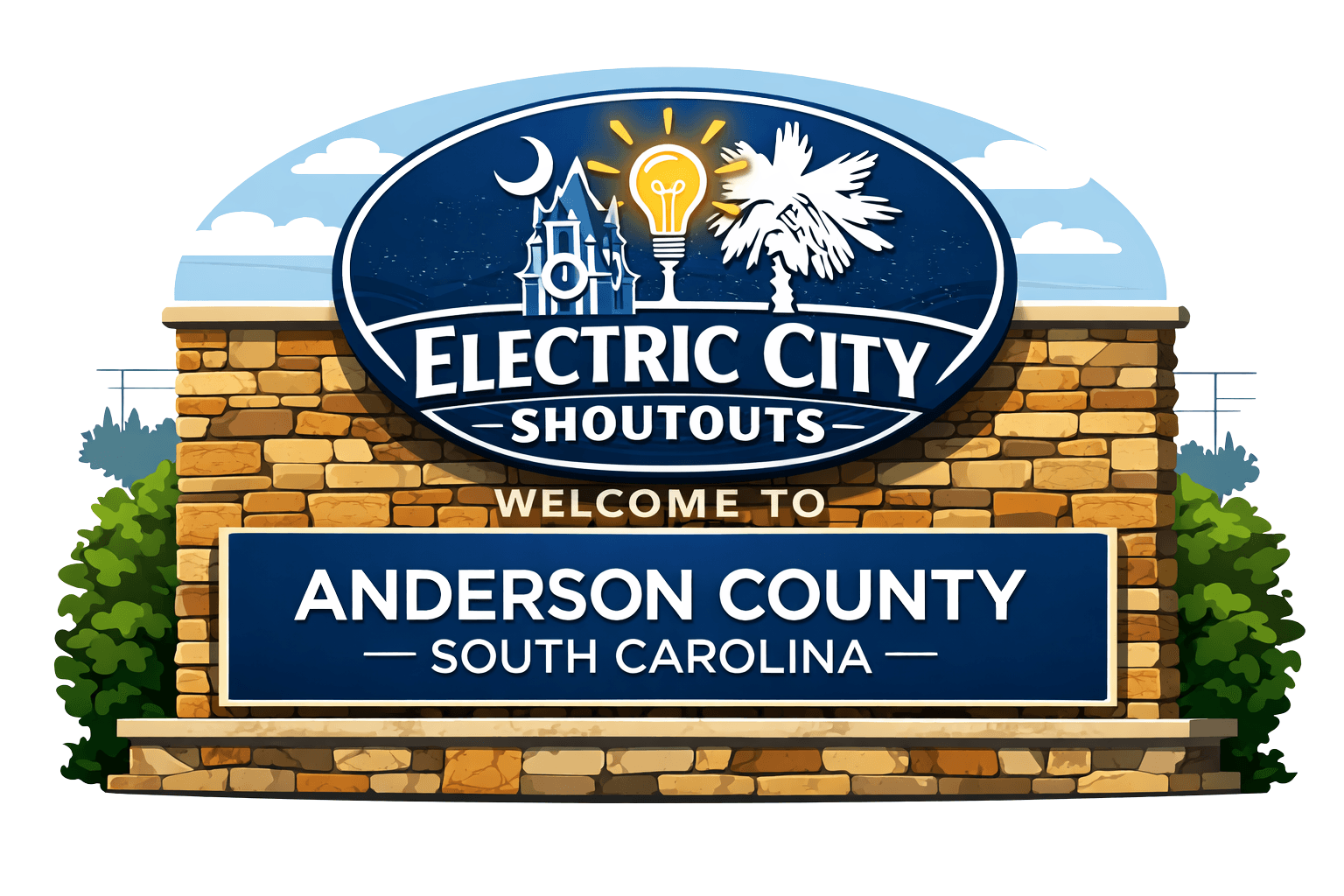Uncovering The Electrifying Secrets Behind Anderson: The Shocking Truth Behind The Electric City!
Electric City Shoutouts
Archives
Uncovering The Electrifying Secrets Behind Anderson: The Shocking Truth Behind The Electric City!
SIGN UP FOR OUR NEWSLETTER
Why Anderson is Called "The Electric City" – And the Shocking Story Behind It |
If you've ever strolled through downtown Anderson and wondered why it's called "The Electric City," you're not alone. It turns out, there's an electrifying story behind the name that dates back more than a century — and it's one of innovation, ambition, and light. Back in the late 1800s, electricity was a rare luxury, mostly reserved for large cities. But in 1895, a visionary named William Whitner had a bright idea: use the nearby Rocky River to generate power through a hydroelectric plant. People thought he was nuts. At the time, hydroelectricity was an emerging concept, and nobody expected a small Southern town to lead the charge.
But Whitner wasn’t easily discouraged. After experimenting with a small-scale system in downtown Anderson, he expanded his project, eventually constructing one of the first long-distance transmission lines in the country. That power lit up street lamps, homes, and even one of the area’s cotton mills — making Anderson the first city in the Southeast to have continuous power.
This was a huge deal.
Factories could operate longer. Families could read and work after dark. Businesses could stay open late. Anderson quickly became a symbol of modernity and progress.
People across the country took notice, and the nickname "The Electric City" was born. In fact, Anderson’s hydroelectric success became a model for other towns and cities. Whitner’s work was so revolutionary that even Thomas Edison gave it a nod of approval.
Today, while modern power grids have evolved, Anderson still proudly wears the title. The legacy lives on in street signs, historical plaques, and local pride. When you flip a light switch in Anderson, remember you're part of a city that helped spark an energy revolution.
So next time someone asks why it’s called "The Electric City," you can tell them it’s more than just a catchy nickname — it’s a tribute to a city that lit up before the rest of the South caught on.
|



